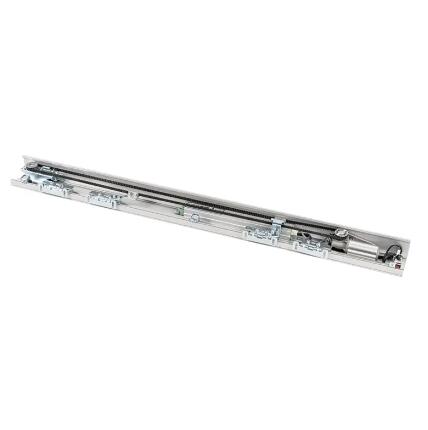Choosing the Right Sliding Function Door for Your Home: A Comprehensive Guide
2024-09-04
Sliding function doors are a versatile and stylish option for many spaces, offering numerous benefits such as space-saving design, ease of use, and enhanced aesthetics. However, with so many options available, choosing the right sliding door for your home can be a daunting task. In this blog, we'll guide you through the key factors to consider when selecting the perfect sliding function door to meet your needs.
1. Purpose and Placement
The first step in choosing a sliding function door is to determine its purpose and where it will be installed. Sliding doors can be used for various applications, such as room dividers, closet doors, or entryways to outdoor spaces. Understanding the specific function of the door will help you narrow down your options. For instance, if you need a door for a high-traffic area like a living room or kitchen, durability and ease of operation will be critical factors. Conversely, if you're selecting a door for a closet, aesthetics and space-saving features might be your primary concerns.
2. Material Selection
Sliding function doors come in a variety of materials, each offering different advantages:
- Glass: Glass sliding doors are ideal for spaces where you want to maximize natural light and create a sense of openness. They are available in clear, frosted, or tinted options, depending on the level of privacy you require.
- Wood: Wooden sliding doors offer a classic, warm look that suits traditional and rustic interiors. They can be stained, painted, or left natural to match your decor.
- Metal: Metal sliding doors, often made of aluminum or steel, provide a modern, industrial aesthetic. They are durable and low-maintenance, making them a great choice for contemporary spaces.
- Composite Materials: Composite doors combine the benefits of different materials, such as wood and plastic, offering durability, weather resistance, and a wide range of design options.
Your choice of material should align with your overall interior design style and the specific needs of the space.
3. Track and Frame Quality
The quality of the track and frame is crucial for the smooth operation and longevity of your sliding function door. Look for doors with high-quality, durable tracks that allow the door to glide effortlessly. Stainless steel or aluminum tracks are ideal for their durability and resistance to rust and wear. Additionally, the frame should be sturdy enough to support the door's weight and withstand frequent use. A well-constructed frame will ensure that the door remains stable and functions correctly over time.
4. Size and Configuration
Sliding function doors come in various sizes and configurations, from single-panel doors to multi-panel systems. The size of the door you choose should be proportional to the space it will occupy. Measure the opening carefully to ensure a proper fit. If you have a larger space or want to create a dramatic effect, consider a multi-panel sliding door system that can open up an entire wall. For smaller spaces, a single-panel door may be more appropriate.
5. Aesthetic Considerations
The appearance of your sliding function door plays a significant role in the overall look of your space. Consider the color, finish, and design details of the door. For a cohesive look, choose a door that complements the existing decor, including the flooring, wall color, and furniture. If you're going for a minimalist look, opt for sleek, frameless glass doors. For a more traditional or rustic feel, wooden doors with decorative hardware might be the best choice.
6. Privacy and Light Control
Depending on the location of the sliding function door, you may need to consider privacy and light control. For bedrooms, bathrooms, or home offices, you might prefer frosted or tinted glass to maintain privacy while still allowing light to filter through. If privacy isn't a concern, clear glass can create a sense of openness and connectivity between spaces. Additionally, consider whether you want the option to add curtains or blinds to your sliding doors for added light control.
7. Installation and Maintenance
Finally, consider the installation and maintenance requirements of your chosen sliding function door. While some doors are relatively easy to install, others may require professional installation, especially if they involve complex track systems or large panels. Maintenance is another important factor; glass doors will need regular cleaning to stay clear and streak-free, while wooden doors may require occasional staining or sealing to maintain their appearance.
Conclusion
Selecting the right sliding function door involves careful consideration of various factors, including the door's purpose, material, size, and aesthetic appeal. By understanding your needs and preferences, you can choose a door that not only enhances the functionality of your space but also adds to its visual appeal. Whether you're looking to create a seamless indoor-outdoor transition or simply want to save space in a small room, the right sliding function door can make a significant difference in your home's design and usability.



